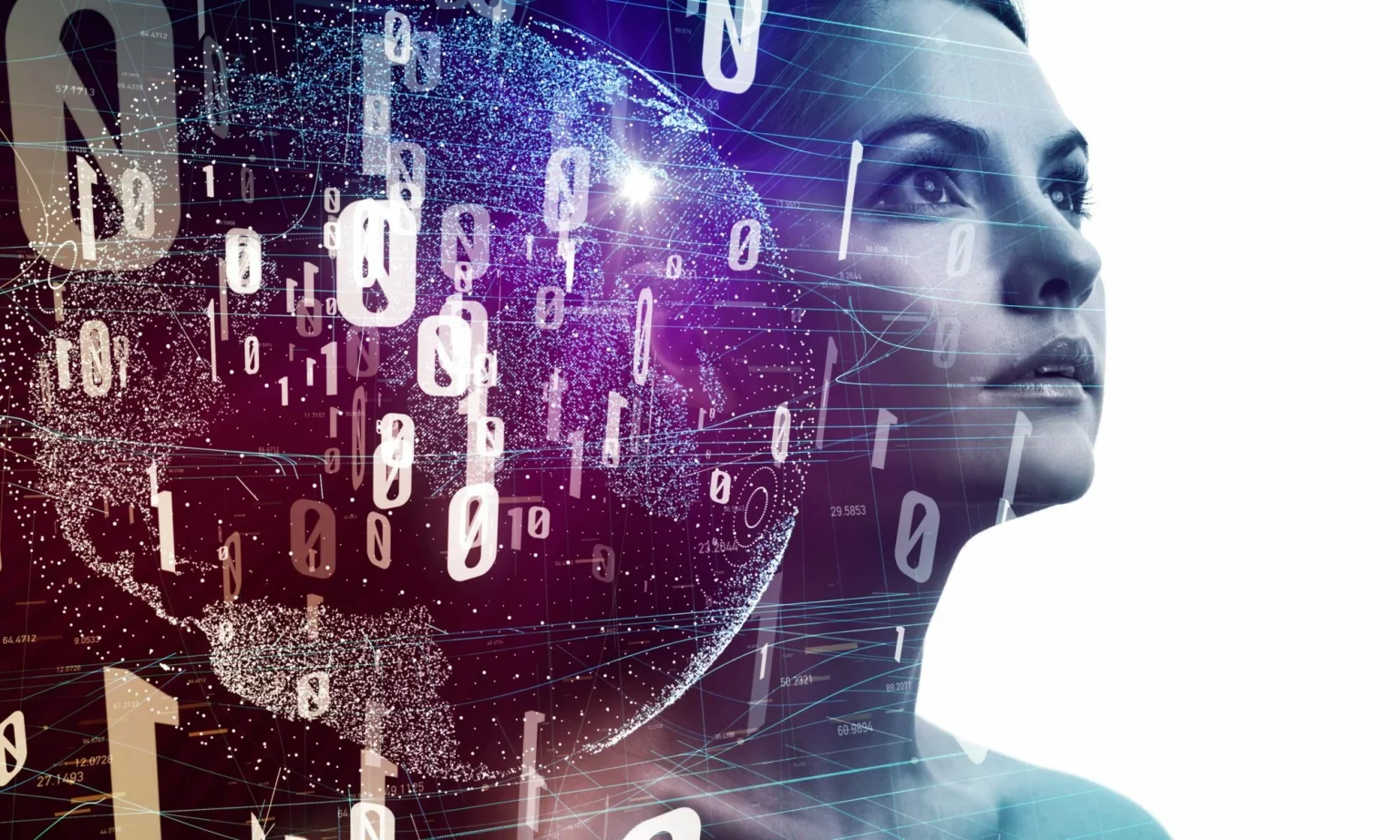In today’s hypercompetitive digital landscape, with soaring customer expectations, the use of AI for branding and marketing has emerged as the ultimate differentiator for brands. More than just hype, it’s a tangible force revolutionising how businesses engage audiences, deliver personalised experiences, and drive measurable results.
Whether you’re a seasoned marketing pro looking to stay ahead or a tech-savvy entrepreneur eager to explore AI’s potential, this comprehensive guide is your roadmap to navigating the exciting world of AI branding and marketing. Here, we cover the latest AI trends that are reshaping the industry, from AI-powered content creation to AI-powered influencers. You’ll discover how AI can personalise customer experiences and even predict potential PR disasters before they happen.
Learn about:
- The latest AI trends in 2024: Explore the cutting-edge AI technologies transforming marketing and advertising.
- AI-powered content creation and personalisation: Learn how AI can generate high-quality content at scale and personalise it for your audience.
- Virtual AI influencers: Discover how AI-powered influencers are changing the face of brand ambassadorship.
- AI crisis prediction and management: Uncover how AI can help you anticipate and mitigate potential public relations crises.
- Ethical AI use: Understand the importance of responsible AI use and data privacy.
Ready to unlock the full potential of AI for your brand? Then read on to discover how AI can take your brand to new heights.

What is artificial intelligence?
Before we talk about AI’s revolutionary impact on branding and marketing, let’s take a moment to demystify this transformative technology. What exactly is AI, and why’s it generating so much buzz in the business world?
Artificial Intelligence refers to the simulation of human intelligence by computers to perform tasks that typically require said human intelligence. Easy right?
These tasks include:
- Learning: AI systems can acquire new knowledge and skills through experience and data analysis.
- Reasoning: AI can analyse information, draw inferences, and make logical deductions.
- Problem-solving: AI can devise solutions to complex problems, often more efficiently than humans.
- Understanding language: AI can process and interpret human language, both written and spoken.
The building blocks of AI
It’s important to note that AI isn’t a single technology. Rather, it’s an umbrella term encompassing various sub-fields and techniques, including:
- Machine learning: Machine learning allows computers to learn without being explicitly programmed, by recognising patterns in data and making predictions.
- Natural language processing (NLP): NLP enables computers to make sense of and create text and speech that mimics human communication.
- Computer vision: Computer vision allows computers to interpret and understand visual information from the world, such as images and videos.
- Robotics: The design, construction, operation, and application of robots to perform tasks autonomously or with human guidance.
The rise of AI-powered marketing
Now that we’ve laid the groundwork, let’s explore how AI is transforming the fields of branding and marketing as we know it. At its core, marketing is about empathising with, understanding, and engaging customers. By integrating machine learning, NLP, computer vision, and automation, AI enables businesses to achieve unprecedented strategic advantages, including:
- Analysing data at scale: AI can sift through vast datasets to uncover hidden trends and patterns that inform marketing strategies. This data-driven approach informs more effective marketing strategies.
- Predicting consumer behaviour: AI can analyse past business and consumer data–consumer purchases and preferences for instance–to predict future actions. This allows marketers to target their campaigns more effectively.
- Personalising experiences: AI enables brands to deliver hyper-personalised content, offers, and recommendations to individual customers at scale. This boosts customer engagement and loyalty, ultimately driving conversions.
- Automating repetitive tasks: AI-powered tools can automate mundane tasks like social media posting, email marketing, and data entry. This frees marketers up to focus on high-value strategic initiatives–a win for productivity enthusiasts.
Now, let’s explore the cutting-edge AI trends that are revolutionising how brands engage with consumers.
AI branding and marketing trends in 2024
In 2024, the marketing landscape continues to see radical transformation, fuelled by growing business and consumer interest in AI technology. Here’s a look at the key trends that are redefining how brands connect with their audiences and drive growth:
- Personalised marketing: AI enables hyper-personalisation by analysing customer behaviour and preferences. This allows for tailored marketing messages and product recommendations, increasing engagement and conversion rates.
- Predictive analytics: Predictive analytics uses AI to analyse historical data and predict future trends. For example, AI can predict likely customer purchases based on their past buying behaviour, improving targeted marketing efforts.
- AI-powered content creation: AI tools can generate high-quality content, from blog posts to social media updates, by analysing existing content and audience engagement. This helps marketers maintain a consistent content flow while saving time and resources.
- Voice search optimisation: The rise of voice-activated assistants like Alexa and Siri has made optimising content for voice search crucial. AI helps in understanding and predicting voice search queries, ensuring brands stay visible in this growing search medium.
- Programmatic advertising: AI automates the buying and selling of ads in real-time, targeting specific audiences more effectively and efficiently. This increases the effectiveness of ad spend and maximises ROI.
- AI-powered chatbots: Chatbots enhance customer service by providing instant responses to queries and guiding users through the purchasing process. They improve customer satisfaction and free up human resources for more complex tasks.
- Augmented reality (AR) and AI: The combination of AR and AI creates immersive and interactive customer experiences. Brands can use AR to showcase products in a virtual environment, allowing customers to visualise products in their own space before making a purchase–enhancing engagement and driving sales.
Dive deeper into these trends and their practical applications in our article: The AI wave: Riding the top 7 AI marketing trends in 2024. Otherwise, read on to explore one of the most exciting areas of AI marketing: Content creation.
AI-driven content creation and personalisation
AI for content creation
One of the most exciting frontiers where these AI trends converge is content creation. AI isn’t just changing how we consume content; it’s revolutionising the way we create it, too. Here’s a look at how AI-powered tools are empowering brands to produce engaging, personalised content at scale:
- Fuelling creative inspiration: Remember predictive analytics? AI can leverage this same data-crunching power to analyse trends, audience preferences, and competitor content to spark fresh ideas that resonate with your target audience–becoming an invaluable tool for overcoming writer’s block, boosting productivity, and maintaining a consistent brand voice.
- Search engine optimisation: AI’s ability to analyse search trends and keywords can help optimise your content for maximum search visibility. This ensures your brand’s message reaches the right people at the right time, driving organic traffic and boosting your online presence.
- Scaling content production: Struggling to keep up with the demands of a content-hungry audience? Thanks to advancements in NLP, AI writers can generate drafts, outlines, even complete pieces of content in minutes. While they can’t replace human creativity entirely, AI-powered tools can automate repetitive tasks like social media posts, product descriptions, and even personalised email campaigns. This frees you up to focus on higher-level strategy and creative ideation.
But to fully harness the potential of AI for content creation, it’s important to master the skill of AI prompt engineering. Prompt engineering involves crafting clear, specific instructions to guide AI models towards generating output that aligns perfectly with your vision.
To learn how to craft effective prompts, check out our prompt engineering guide: AI prompt engineering secrets for effortless content creation.
Personalising customer experiences with AI
Beyond content creation, AI is also transforming how brands personalise customer experiences. AI personalisation leverages data and algorithms to deliver tailored content, offers, and recommendations to individual users. For instance, AI-powered customer segmentation divides a customer base into smaller groups based on shared characteristics, enabling highly customised messaging. Personalised product recommendations, on the other hand, use machine learning algorithms to analyse customer data, offering suggestions that meet individual needs–much like how Netflix curates content for its users.
More personalised customer experiences can lead to:
- Higher engagement: Personalised content is more likely to capture attention and resonate with individuals, leading to increased engagement and interaction.
- Improved conversions: By providing relevant recommendations and offers, AI personalisation can guide customers through the sales funnel more effectively, boosting conversions and sales.
- Stronger customer relationships: Personalised experiences also make customers feel valued and understood, fostering loyalty and long-term relationships with your brand.
Of course, there’s more to personalising customer experiences than algorithms; it’s also about establishing a human connection. Discover how to infuse your AI-powered marketing with empathy and authenticity in our article: When AI marketing embraces humanity.
AI-powered influencers: The new face of brand ambassadorship
As we’ve seen, AI is enabling brands to connect with consumers on a deeply individual level. But the power of AI personalisation extends beyond just tailoring content and experiences; it’s also re-shaping the very face of brand representation. AI influencers–digital personas meticulously crafted with AI and advanced computer graphics–are captivating audiences across social media platforms. More than just pretty faces–they’re sophisticated marketing tools capable of engaging audiences, promoting products, and representing brands with unparalleled consistency and control.
In an era where authenticity and relatability are paramount, it might seem counterintuitive that virtual influencers are gaining traction. Yet, these AI creations are making waves across social media platforms, captivating audiences and challenging traditional notions of what constitutes an influencer.
Virtual influencers offer several benefits over their human counterparts, namely:
- Always on, always consistent: Unlike human influencers, virtual influencers are available 24/7, delivering a consistent brand message without the risk of personal scandals or inconsistencies.
- Customisation and control: Brands have complete control over the appearance, personality, and messaging of their virtual influencers. This guarantees perfect alignment with their brand identity.
- Global reach: Virtual influencers can effortlessly transcend geographical boundaries and cultural barriers, connecting with diverse audiences worldwide.
Overall, virtual influencers represent a new frontier in brand ambassadorship, offering exciting opportunities for innovative and impactful marketing campaigns. AI-powered influencers like Lil Miquela have already demonstrated their potential by gaining millions of followers and collaborating with major brands. By embracing this AI-driven trend, brands can stay ahead of the curve and in ways never before possible.
To explore the potential of these digital personas and discover how they can elevate your brand’s visibility, read our article: Can AI-powered Virtual Influencers Become Brand Ambassadors?
AI for public relations crisis prediction and management
While AI is certainly transforming how brands connect with their audiences and promote their products, its impact extends beyond the field of marketing. In today’s volatile business landscape, where a single misstep can snowball into a full-blown PR crisis, AI is emerging as a powerful ally in public relations crisis prediction and management.
Imagine having a radar system that could detect potential crises before they erupt, giving you precious time to prepare for and mitigate risks. That’s exactly what AI can offer. By analysing vast amounts of data from social media, news outlets, customer feedback, and other sources, AI algorithms can identify patterns, anomalies, and emerging trends that signal potential threats to your brand reputation.
This proactive approach empowers businesses to:
- Anticipate potential crises: Get early warnings of brewing storms, whether it’s a product defect, a customer complaint gone viral, or a negative news cycle.
- Develop contingency plans: Create tailored response strategies to address specific scenarios before they escalate.
- Mitigate risks: Take pre-emptive measures to reduce the potential impact of a crisis, safeguarding your brand’s image and reputation.
Personalised crisis communication: The right message at the right time
When a crisis does strike, effective communication is key. AI can help you craft and deliver personalised messages that resonate with different audience segments, ensuring clarity, relevance, and empathy.
By tailoring your communication to specific stakeholders, you can:
- Build trust and transparency: Demonstrate your commitment to open and honest communication, even in challenging situations.
- Address concerns effectively: Provide targeted information and reassurance to those most affected by the crisis.
- Prevent misinformation: Proactively counter rumours and misinformation with accurate and timely communication.
By leveraging AI for public relations crisis prediction and management, businesses can stay ahead of potential issues, ensuring a proactive and effective response that minimises impact and protects their brand reputation. For more in-depth insights, our article: ‘From Crisis Prediction to Personalisation: AI’s Transformative Power in PR‘ explores AI-driven techniques for predicting crises, strategies for personalised communication during a crisis, and real-world examples of successful AI implementation in crisis situations.
Ethical considerations in AI branding and marketing
As AI becomes increasingly embedded in the fabric of marketing, its potential to revolutionise how we connect with and serve customers is undeniable. However, with this power comes the profound need to ensure that AI is used ethically and responsibly.
Building trust through openness
The algorithms that drive AI systems are complex and often opaque. This lack of transparency can lead to unintended biases, discrimination, or even manipulation. To build trust with your audience and maintain brand integrity, it’s imperative to prioritise transparency in your AI marketing practices.
This means:
- Openly communicating how AI is being used: Clearly explain how AI is integrated into your marketing strategies, what data it collects, and how it makes decisions.
- Ensuring fairness and avoiding bias: Regularly audit your AI algorithms to identify and eliminate any biases that could lead to discriminatory outcomes.
- Providing recourse and transparency: Offer customers the ability to understand why certain decisions were made by AI systems and provide avenues for recourse if they feel they’ve been treated unfairly.
Data privacy and security: Safeguarding customer information
AI systems often rely on vast amounts of customer data to function effectively. Protecting this data is not only a legal obligation but also a fundamental ethical imperative. Implement robust data privacy and security measures to:
- Collect and store data responsibly: Only collect the data that is necessary for your AI marketing initiatives and store it securely.
- Obtain informed consent: Be transparent about how you’re using customer data and give them the option to opt out of data collection or specific uses.
- Anonymise and aggregate data where possible: Minimise the risk of identifying individuals by anonymising or aggregating data when possible.
- Regularly update security protocols: Stay vigilant against potential threats and continuously update your security measures to protect customer data from breaches.
Remember, ethical AI isn’t simply about compliance. It’s a conscious choice to use technology in a way that positively impacts your business and the world around you. By embracing ethical considerations in your AI marketing efforts, you not only safeguard your brand’s reputation but also contribute to a more responsible and equitable use of AI technology.
To understand the ethical implications, benefits, and risks of using AI in your branding and marketing, read our comprehensive article: What’s Ethical AI in Marketing?
Conclusion: The future of AI branding and marketing
As we’ve discussed throughout this comprehensive guide, artificial intelligence isn’t just a passing fad–it’s a transformative force that’s reshaping the branding and marketing landscape. From content creation and personalisation to influencer marketing and crisis management, AI offers unprecedented opportunities for businesses to connect with their audiences, drive engagement, and achieve sustainable growth.
But as we embrace the power of AI, it’s crucial to remember that innovation and responsibility go hand in hand. By prioritising ethical considerations, such as transparency, fairness, and data privacy, we can ensure that AI is used not only to advance our businesses but also to create a more inclusive and equitable digital landscape.
Your Next Steps in the AI Revolution
The future of branding and marketing is AI-powered. To stay ahead of the game and harness the full potential of this transformative technology, consider these next steps:
- Explore our linked resources: Dive deeper into the topics covered in this guide by exploring the linked articles and resources we’ve provided.
- Stay informed: Continuously educate yourself about the latest AI trends, tools, and best practices to make informed decisions for your brand.
- Partner with experts: If you’re ready to take your AI branding and marketing efforts to the next level, consider partnering with an experienced agency like ours. We can help you develop and implement a customised AI strategy that aligns with your brand’s unique goals and values. Contact us today for a tailored consultation and harness the power of AI to elevate your brand.
Many thanks for embarking on this journey with us to unlock the full potential of AI in branding and marketing. Together, we can build a future where AI-powered brands thrive while upholding the highest ethical standards.





